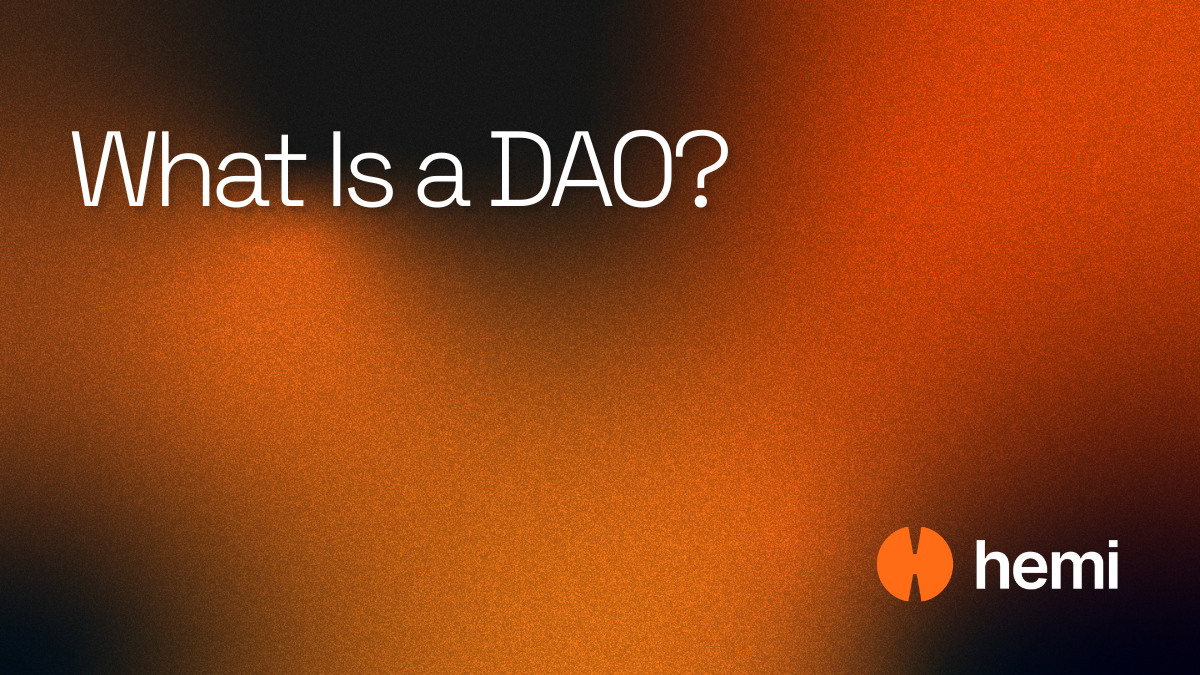- Bitcoin
- Ethereum
- Learn Center
- May 15, 2025
What Is a DAO?
A DAO, or Decentralized Autonomous Organization, allows a group of people to make decisions and manage resources.

A DAO, or Decentralized Autonomous Organization, is a group of people who use blockchain-based rules to make decisions and manage resources together. Instead of a traditional company structure with executives or managers, DAOs use code, usually in the form of smart contracts, to run operations and voting.
How a DAO Works
At its core, a DAO runs on a set of transparent rules written into smart contracts—self-executing code that lives on a blockchain. These rules define how decisions are made, how votes are counted, and how funds can be spent.
Members usually hold tokens that represent voting power. When a decision needs to be made—such as funding a project, changing the rules, or allocating treasury funds—token holders vote. If the vote passes, the smart contract carries out the decision automatically.
DAOs are “autonomous” in the sense that they follow the rules set at launch, and “decentralized” because no single person or entity controls them.
Why Use a DAO?
Transparency: All votes and decisions are recorded on-chain. Anyone can audit the process.
Community Control: No CEOs or central boards. Members steer the organization based on majority vote.
Efficiency: Smart contracts can automate tasks like payments, project approvals, and member onboarding.
Global Access: Anyone with an internet connection and tokens can participate, no matter where they live.
Common DAO Use Cases
- Investment clubs: Groups pool funds and vote on how to invest them.
- Protocol governance: Projects like Uniswap and Aave use DAOs to manage upgrades and policies.
- Grant programs: DAOs like Gitcoin use community votes to decide where funding goes.
- NFT communities: Some DAOs govern how art, IP, or digital collections are managed and monetized.
What to Watch Out For
Running a DAO isn’t easy. Challenges include:
- Low voter participation: Most token holders don’t vote regularly.
- Poor decision-making: Without good information or incentives, communities can make short-sighted choices.
- Security risks: A bug in a smart contract can freeze or drain funds, as happened in the 2016 “DAO hack.”
Also, most DAOs aren’t legally recognized as companies, so questions around liability and regulation are still developing.
DAOs are a new way to organize people and capital without relying on traditional structures. They’re not perfect, but for projects where decentralization and community involvement matter, they offer a compelling alternative.